This interview is part two of my Empowering Women series. It continues my chat with Lynn Frair, who was highlighted in my post, 8 Female Entrepreneurs That Crush Debt And Empower Others. Here Lynn shares more about her struggle to come back from zero after a devastating health crisis. And she also shares her wisdom on credit cards, frugality, investing, and how she still successfully achieved financial independence.
Part I: The Best How To Budget Advice From A Self-Made Millionaire.
If you enjoy a good visual conversation then check out the video for the full inspirational and entertaining interview!
But, for those who’d rather see things in writing, then I’ve got you covered there as well. (The text has been slightly edited for readability.)
Okay, so let’s dive in!
Table of Contents
Lynn, can you tell me about your background and how you got started in personal finance?
Yeah, DeShena, I’d love to!
I first started when I was 12. I wanted to invest my babysitting money.
So I took myself to a “women in business” conference on the bus. And I said…
I’ve got age on my side, and what would you do if you were my age?
And I actually listened to them.
So I walked down to the local bank. Again, before driving age. And I started trying to figure out how to invest. And they sent me home to get my dad.
But, I’ve always been interested in investing. And the concept of — you can have something now — and over time it will be worth significantly more.
I felt like that was a really powerful idea.
So, I went about life. I kept investing, living a nice life, became a nurse, and got married.
AND THEN…
I had a brain tumor which, wiped out all the investing I had done since I was 12.
With medical bills and such. So I had to rebuild from a net worth of zero in my late twenties.
It took a while to recover.
I had to learn how to walk again.
But, I’m so dang stubborn!
I just don’t take no for an answer!
So, once I was safe (of course, I’ve never put anybody in jeopardy) to return to being a nurse, I did. I kept getting promotions, doing well, and enjoying nursing.
Then, at the age of 37, I let them know that I’d be dropping down to part-time. People assumed my husband would be working more. I said he’ll be working less. And, they compared me to Mr. Money Mustache, who’s this Finance blogger. I didn’t know who that was.
My idea was early retirement, perhaps in my late thirties or early forties. Even though, I had to start over again in my late twenties.
So, a couple of years after working part-time, at the age of 39, I decided that I was going to exit for an undetermined amount of time. So I left my nursing job in January of 2019.
(That is like the most amazing Story! I mean, who starts investing at age 12?)
It’s crazy! I know. There’s something not right there (laughter)!
So, when you were struggling with those medical bills, you said it completely wiped you out. Can you give us an idea about how much that was?
Yeah, so, I remember it from doing my taxes. There were some years when we had to pay $24,000 out-of-pocket. I would itemize taxes because we would meet the floor for medical deductions.
And I would say…
Over the course of the decade after my recovery time, it was probably $100,000 out of pocket for medical bills.
The thing is when you’re recovering from something like that you think, gosh, that is so hard. And it is!
But if you lose six months of income, it could be even harder.
Fortunately, I had several colleagues who gave me some of their [work] hours. It certainly didn’t cover everything. But it did definitely help! And I’ll be forever grateful to those folks because I was starting out again at zero.
(Wow, that’s amazing! And I’m glad you had that support. I recently chatted with a woman on Facebook who says she wasn’t Extravagantly Broke but also struggled with medical bills.)
Related Post: How To Make Ends Meet For Families In Financial Crisis.
So, did starting your business help you come back [from broke]?
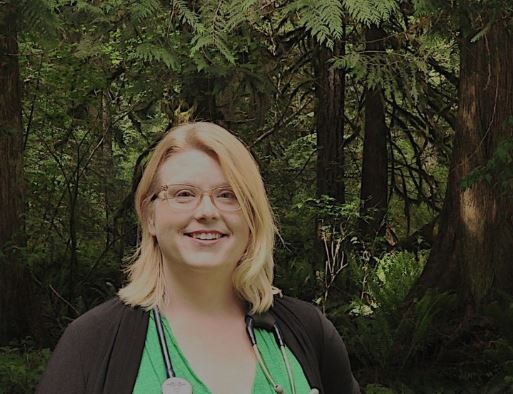
No, I just went back to work as a nurse. And then, with my knowledge of investing, I just had to rebuild again.
So I continued as a nurse, rebuilt, and practiced the simple principles that I have.
It’s actually not super complicated.
It just takes a lot of self-discipline — and time!
So I didn’t start my own business until after I had “retired” in January [2019].
And then I had all these nurses saying — “oh my gosh, how did you do that? You’re the age of my child and I’m still working. I feel like I could do so much better. How did you do that?”
And so I had at one point 65 nurses who said they wanted to learn more. At first, I was giving [my services] away from free and helping people as a financial coach. Then I realized that wasn’t sustainable.
A lot of people didn’t value my time in the way that I needed them to. My time is extremely important to me! Not only that, I was driving around to people’s houses in the area. And coaching them.
So I moved to a paid model, which has been wonderful!
Because I’ve noticed people’s outcomes are even better because they have skin in the game. So, I became a financial coach officially in April of 2019, working specifically with nurses and their families.
Because at the time I formed, that didn’t exist that I could ever find. Now, I’m encouraging others to do the same.
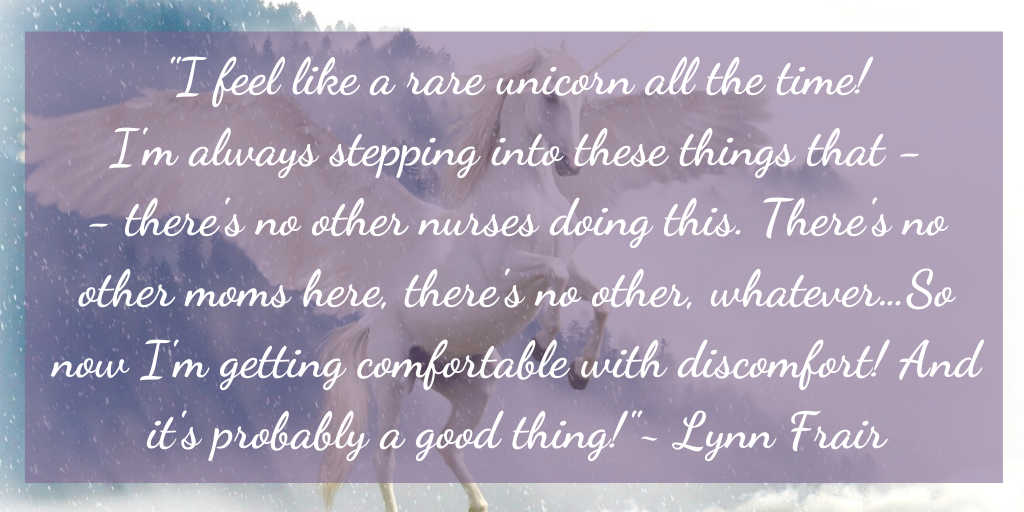
(You know, after FinCon19, financial coaching is something that I want to pursue. I had not even thought about going in that direction before. But while there, I met so many coaches like yourself, and I thought, hmmm! Especially since I’m now 100% debt-free.)

It’s so funny, people assume that I’ve done this business for a long long time when they talk to me. And I think it’s probably because I have always unofficially studied and done it.
In nursing, leadership and coaching were like my favorite things to do. Especially with people one-on-one, to help them reach their goals. It’s so fun to see that progress.
So going from a nurse to a financial coach, how has that transition been?
You know, it’s surprisingly similar…I’m shocked actually!
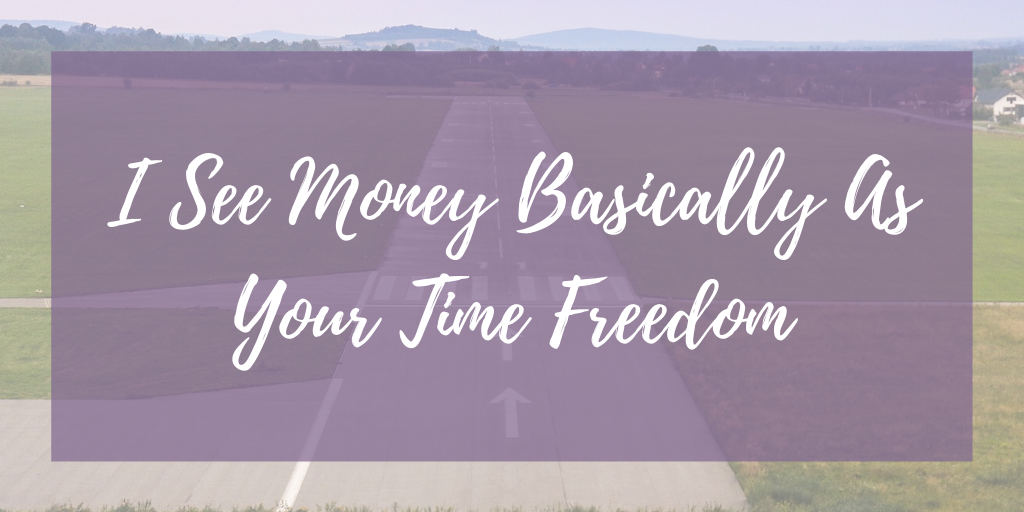
If you have a financial Runway, you can buy yourself some time freedom.
Everything in life is limited. Money and time it’s all limited.
So what I want for folks is to look at is what do they want with their life?
And how do they want to spend their time?
Also because I have this financial brain, how can we align your finances with what you want in life?
(Well, we do a lot of education in nursing. It’s usually about your health. So I look at [money] like your Financial Health.)
So I’m intentionally a financial coach, not a financial advisor! Financial advisors talk about, buy this stock and asset allocation.
What I do is look at the holistic picture of where are you now? Where do you want to go? And let’s start to create a roadmap to get there.
So this is like my dream retirement gig, you can call it! Because, if I could design any job, this would be it. And luckily, there’s a demand for it. So its very fun!
Have you faced any challenges with your business?
I feel lucky because it’s been surprisingly easy!
I think because I had the interest and then I built the business around the interest. You know, I think most people who do business start, and then they try to get their clients.
I’ve been on a lot of podcasts, and I’ve been in the Wall Street Journal. So I had all of that going, which created the demand for people who wanted to work with me.

In your business of coaching, have you noticed a common reason why nurses are in debt? Are they overspending or just mismanaging?
A lot of them tend to be in their late thirties or early forties, and they do have credit card debt.
And what I found is that they don’t realize what interest rate they’re being charged.
So we dig that up. And I say if we just switch from paying this to paying this, you will literally save $400 a month.
That helps them $300 or $400 at a time now. But that education helps them understand their future for the rest of their life.
So this could be tens of thousands of dollars worth of education. It starts small with a few hundred here or there. But…
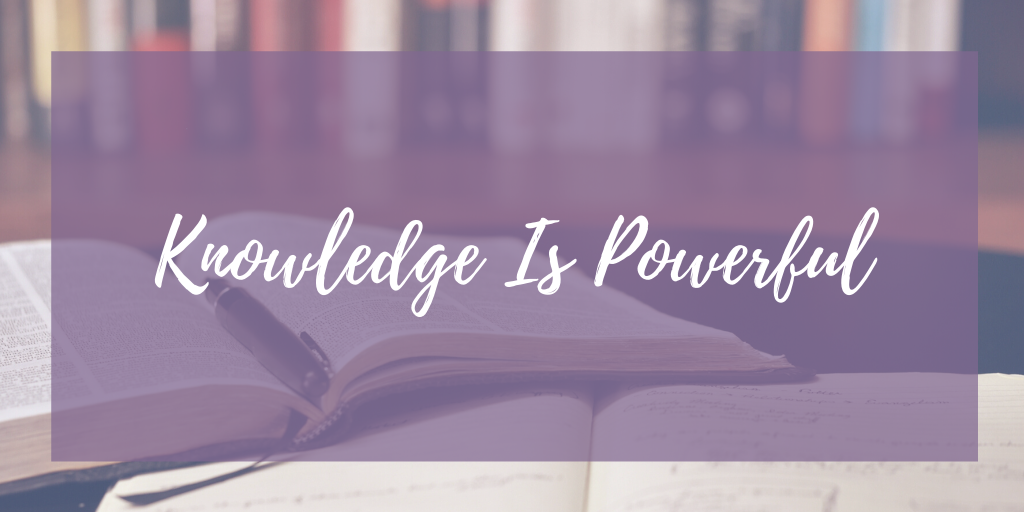
[It sure is! Because I had credit card debt too! I never used to look at the interest rates either or didn’t want to look at it. But I had to get smart. And I started transferring my balances to zero interest cards — even if I could only get it for 6 or 8 months. But during that 6 to 8 months, I could put my money straight towards that balance versus the interest. So that is what helped me a great deal.]
Yeah, interest rate knowledge is probably the single biggest thing that people can do.
Well, there are two things actually:
- Knowledge of interest rates and what that actually means.
- And knowledge about credit scores and how that affects your interest rates.
I work with people on educating them about these things. So that once they leave me, they have that knowledge down forever! And once you get those few concepts down and really solidified, it’s very powerful.
[It is very powerful, and it’s very empowering to know that you can take some control back. You don’t have to be stuck. Even if you’re already feeling overwhelmed, there are steps. They may be small, but they do add up to something great. At least that’s what helped me. Every little I saved here, I was able to take that and apply it to something else over there. It really helped me to climb my way out of credit card debt. Because I was struggling at one point. I think I had about $20,000 worth of credit card debt, which is ridiculous!]
*Related post: How To Get Out Of Debt For Moms Who Feel Stuck.
Well, it’s easy to happen with those crazy interest rates!
And you think, well I’ll just pay the minimum payment. Then before you know it, you’re just treading water trying to get out of this hole that so deep.
I think that’s one of the things that is so helpful for people is to…
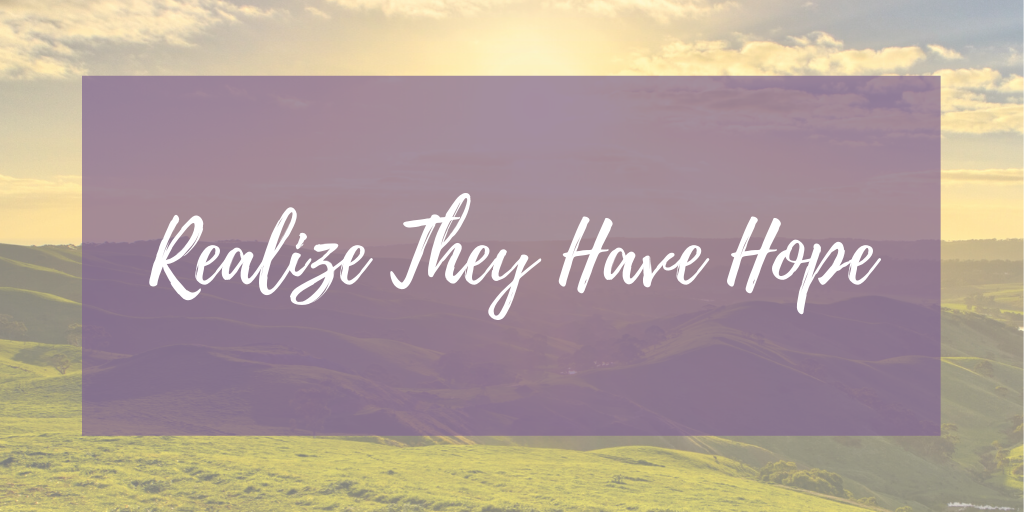
Talking with a financial coach or talking with anybody about money is a really vulnerable position.
To admit that you think you could do better and to kind of show your finances, it’s really scary.
So that’s why I really encourage people, in general, to try to be more comfortable talking about money.
[Yet] we’re okay with flashing what we buy. But we’re not okay with talking about 529 plans for our kids for college.
Let’s shift that a little bit.
[Maybe there’s some shame to that too. Because I know for me, it was embarrassing. I can admit it now because I don’t have the debt anymore. But if I was still in that situation, I would be embarrassed or ashamed to admit that I let the problem get that far out of hand. And that I don’t know how to fix it. I felt hopeless at one point. But I was able to overcome that, fortunately!]
That is such a big part of your story that’s going to help a lot of people. I didn’t have so much of credit card debt.
I had $36,000 of student loans when I graduated. But I actually chose to keep that for a long time because I had such a low-interest rate. It was 2.25%, which you don’t find anymore!
Sometimes…
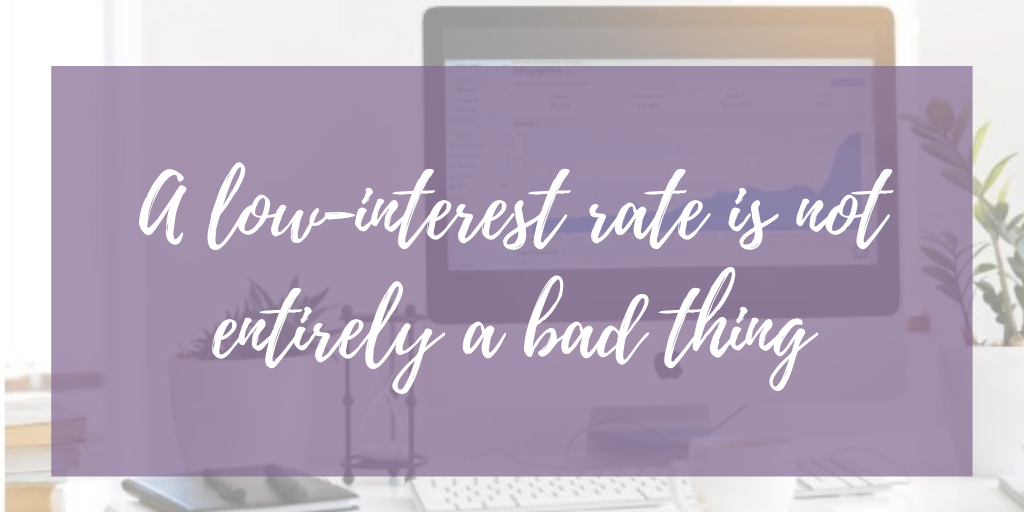
You know, though it’s all in the context of what else is going on. But back in 2001, it was still at the time a big hill to climb.
[I had nowhere near that amount, Maybe $8,000 worth. And it still took me 14 years to pay that off? Because I kept doing forbearances, I bought a house, had a baby, got a car. After I graduated from college, that’s when I started living my life! And started taking on debt. Before tackling those student loans]
This will be interesting to compare and show how interest rates are so powerful. So you had $20,000 of credit card debt. How much would you say your minimum payments were for that if you don’t mind me asking?
[No, I don’t mind. I think the interest rate was about 23%. I mean, it makes no sense!]
So with my $37,000 that I owed, because the interest rate was so low, my payment was $237.
But you had 20,000 with an interest rate of 23%. There’s no shame in that because this is what credit card companies charge.
I’m going to guess that even though your $20,000 was half of my $37,000 my guess is that you were paying much more than $237 a month.
[Oh, wow, yeah! It was like at least $500 a month!]
So I had twice the debt amount, and you were paying twice as much as I was because of the interest rate.
And that’s what I love to help people learn about. Knowing and understanding this is just so powerful for your future.
[It was making me angry because even when I was paying $500 a month, the balance was barely going down! And it was like, no, I couldn’t do that anymore! I just really got fed up! Like Dave Ramsey says, get mad! So that’s when I really started looking at that, and I’m like, it’s this interest rate that was killing me! So I had to start transferring balances to get 0% interest for like 18 months. And once I was done with that, I moved it to another card for like six or eight months. And I just kept doing that until I paid it off. And I could see that balance really dropping. So, I got motivated!]
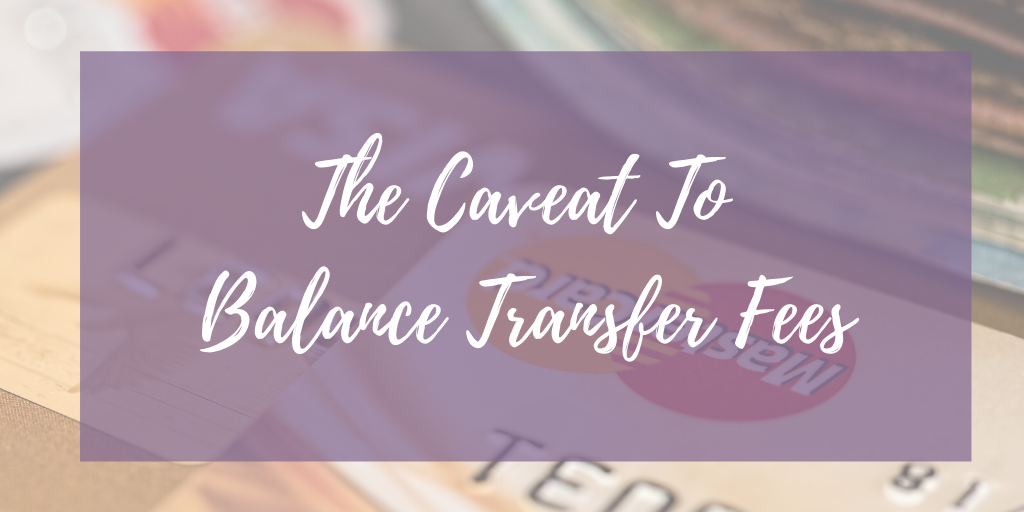
That’s so good! That can be a powerful way to get that under control.
The caveat that I always tell folks about Balance transfer offers is that…
Credit card companies are not doing that to be nice, unfortunately.
They charge a balance transfer fee. And it’s usually between 3% and 5%.
So if you were paying 23%, that’s a lot lower. But you also have to know that during that free time of 0%, they don’t cancel the interest usually. They defer it!
So if you don’t pay it off in that time frame, they will sock you with all the back interest, usually. So, if anyone is considering that, they have to pay it down in that time or have another plan.
[That’s why] it’s important to look at the caveat. And the stuff that credit card companies would love for you to not remember.
What advice would you have for people who are still struggling with debt?
I think what can be so difficult is you can feel overwhelmed.
And when you’re in debt, Interest rates are working against you! And so they can accumulate and accumulate to the point where it’s completely overwhelming.
So what you really need to do is…
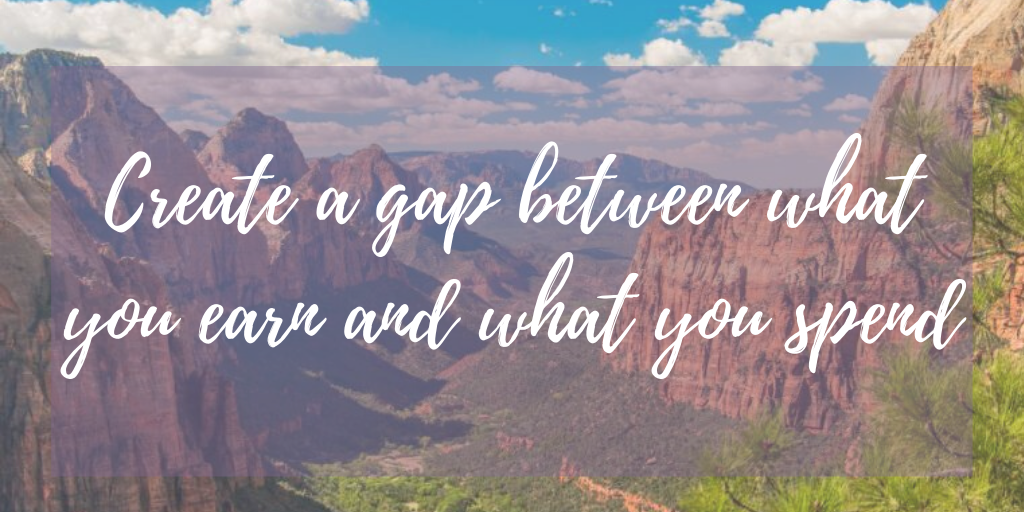
And the way to do that is by:
- Really taking stock about what do you value?
- What can you let go of — at least for this time while you’re digging out?
- [Realize] I’m spiraling. And if I don’t do something, it’s going to get worse. And I want it to get better!
So you’re miserable. It’s overwhelming. And you think [either] this is just getting worse. Or, am I working really hard just to stay in place.
Perhaps even temporarily, take a look at, what can I release for now?
Some people really care about expensive clothes. And some people don’t really care about that.
So can you let that go for a little while if that’s something you’re spending for that doesn’t really bring you Joy?
One big thing we do that’s really powerful is that — we fix almost everything that we have!
For instance, my hairdryer broke. Even though I’m good at fixing everything, my instinct was just to pitch it. [I was] thinking that it’s old and I don’t want to fuss with that.
YouTube literally said it’s the filter. And it took a whole 15 seconds [to fix], and then I have a perfectly functioning hairdryer.
Plus, now I don’t have stuff filling up the landfill. I didn’t have to drive [anywhere] or have Amazon deliver me another package.
So many things we throw away can actually be fixed reasonably easy.
Which actually:
- Saves you time
- Save a lot of money
- Now you have a new skill
So, that’s one of my favorite ways to grow that Gap.
[Oh yeah, we had to do a lot of our own home repairs around here as well to save money. And when my husband changed all the toilets and a piece wasn’t fitting, he went to YouTube. And it told you which one you need and exactly where to go buy it for that specific toilet. Amazing!]
So now after starting over from zero and with your coaching business, you’re back to financial Independence?
Yeah, so I was financially independent when I left nursing.
So my passive income covers our living expenses. And part of that is through:
- Investing that was efficient
- Low fees
- Plus our cost of living is not super high
We had a lot of debt at one point, and we got it down.
So, when you don’t have:
- A car payment
- You don’t have credit card payment
- And you don’t have student loan payments
- And your mortgage cost less than maybe an apartment (which is true for us)
Then your life doesn’t cost THAT MUCH.
And most of us spend most of our money on interest payments. And when you don’t have that, you don’t need as much to live off of!
So I launched the coaching business and I don’t live off any of the money that I make in the business.
[For now] I’m reinvesting it back into supporting my clients, getting more knowledge or connections, and helping others.
[I love that you said when you learn to live with less, you don’t need as much money. I mean, that was very eye-opening for me. They always say to have 6 months or a year’s worth of expenses for any situations that might come up. The thing of it is that if you have fewer expenses, that number isn’t so daunting!]
Yeah, because let’s say people spend $70,000 a year to live off of.
Think about how much of that goes towards your mortgage, car payments, student loans, credit cards, and all that.
So if you take all that out — then how much of that $70,000 would you actually need? It’s usually quite a bit less, then what you’ve been living off of if you are able to start to get your debts down.
And we live a really nice life!
We have a home with a view of the golf course in the Seattle area. It’s an older home, so we do a lot of fixing it ourselves when needed.
We have two cars which are not super fancy, but they are perfect for us. They are a Lexus and Toyota, but they’re older, and we have no payments on them.
The girls have been in private school. We eat organic food, my husband is a chef...it’s a nice life!
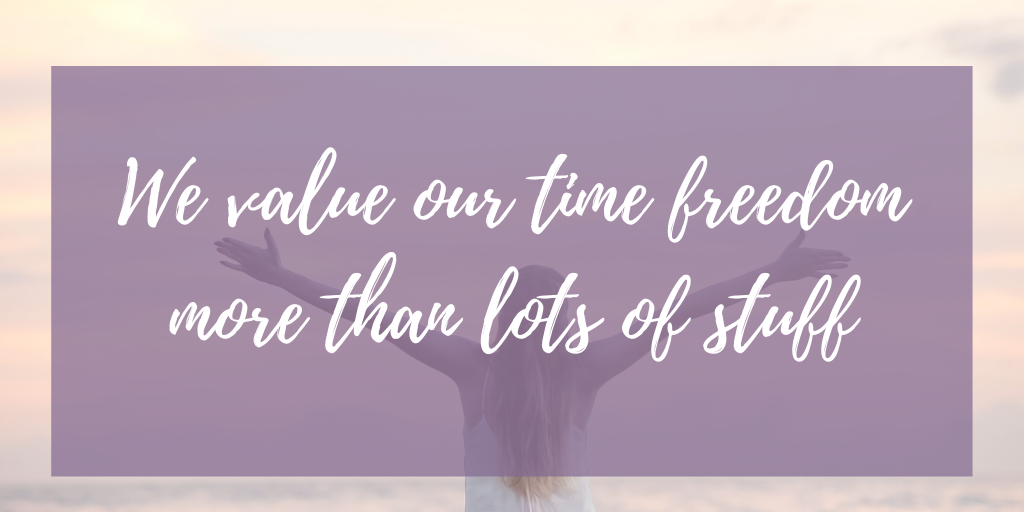
[Yes, I understand! And I see why being Frugal, and a minimalist is catching on. Because I’ve learned that I don’t need a lot of fancy stuff to be happy. I’ve done the fancy car thing. And when I did that, I was in debt! Now, I’m driving a Nissan. I have no car payments. And it’s only four years old! It’s perfect, and it’s comfortable! I don’t think that driving a luxury car is going to make me feel any better than I feel while driving my Nissan. I love it!]
Yeah, and there’s something that’s difficult to describe when you have that freedom. I want people to be able to know that that could be possible for them.
It does require some tweaks, of course, it does! But time Freedom, oh my gosh!
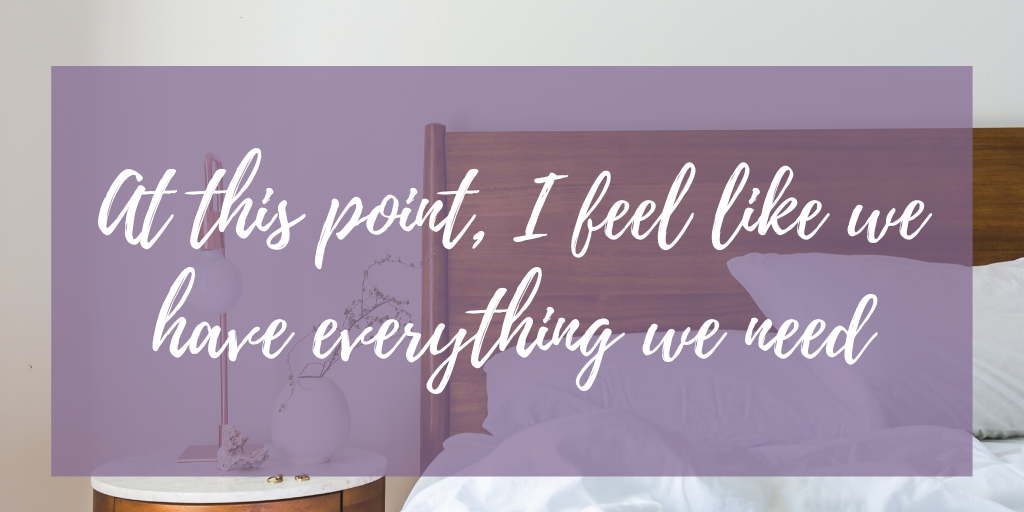
My clothes, they’re just not fancy.
Almost everything in our house we buy used.
People say, isn’t that so hard to not have new clothes for the girls?
So, we totally could have new clothes for the girls. We just don’t value that!
And I’m also concerned about the environment. So I love that it keeps those implications lower. And then it allows for this freedom and flexibility — that is priceless!
[I love it! That is so helpful to people. Just that mindset of, they’re good clothes. And I’ve done a lot of Consignment shopping. I turn clothes in there. And I’ve bought clothes from there. My husband loves shopping at Goodwill to get his work clothes. And they’re perfectly good t-shirts. And it works!]
Yeah, I think it’s just sort of like pausing and going, okay, do I even need this shirt?
In my case, I always like to buy black shirts that are Lacy in some way because I’m attracted to that. Then I’m like, hmmm Lynn, but you already have 12 shirts that are black and Lacey and some way.
But just pausing to say, now my closets going to be more cramped and harder to find stuff. And how is that adding value to your life? It’s so crowded you can’t even get in there.
[ Exactly! Oh, I have so many things that I haven’t worn in years just still taking up space in my closet. I haven’t tackled that monster yet! But yes, you are so right! We just need to see what we value the most. And does it really matter if you have this shirt verses that shirt as long as you have a nice shirt to wear!. I’d rather have the money in my bank account, to tell you the truth!]
Yeah, and sort of questioning…

Am I trying to impress other people, or is this something that I truly value?
So I’m really open about, for instance, a chair I bought from Craigslist.
But some people get really embarrassed about — oh, I bought this used and that must mean I’m really poor!
It’s like, umm, are you worried about what other people think? Or is that something that truly bothers you?
[Exactly! Exactly]
So what advice would you have for any women aspiring to start their own business?
I’m trying to think of my favorites because I have so many thoughts about so many things.
- I think reaching out to other women who have started their businesses and are doing what you want to do. Then, talking with them.
- And, whatever business it is I recommend taking on some beta clients like I did with my coaching. At first, I had free clients, and I would say, in exchange for this, I would love your honest, truthful feedback about what is great and what could be better.
- Be willing to Pivot! You know, there’s part of my coaching business that was really a small part, and it became a really big part. So I kind of pivoted.
And I’m growing that part about figuring out what kind of healthcare options are out there for folks.
That has been a lot of the barrier for folks to transition to entrepreneurship. Trying to figure out what are they going to do with their health benefits.
So just be willing to Pivot.
[Since this interview, Lynn has created a phenomenal website. It is a compilation of all the available health care options called FiHealthcare]
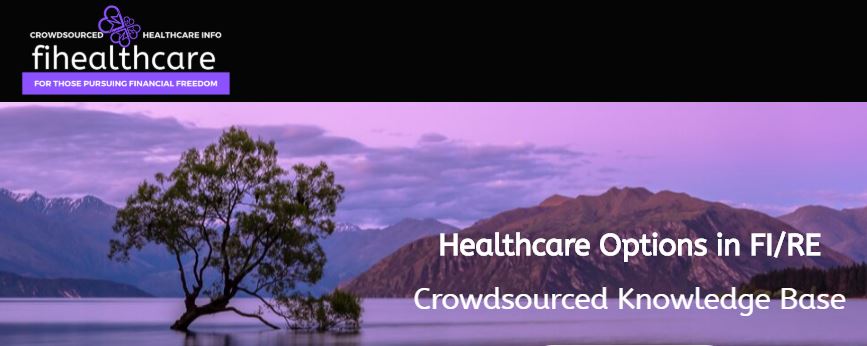
So what do you have coming up next?
Yes, so I’m always working on something!
People said I’d be bored after I left work.
But I was bored for like 4 minutes back in February, LOL! And that’s it!
Then I realize, I wasn’t bored, I was just content.
The big things I’m working on, so I’m financial coaching. And it’s specifically for nurses and their families at Nursenumbers.com.
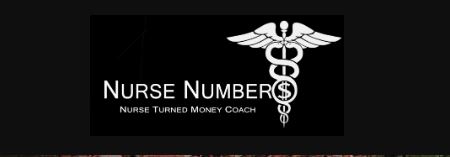
The other big thing that I’m doing is that I’m a public speaker. I’ll be at the EconoMeConference.com in Cincinnati on March 7th, 2020. We’re talking about happiness and prosperity through the lens of personal finance.
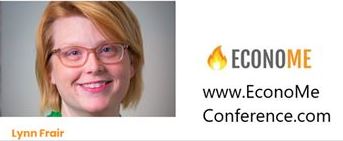
The specific topic is called the 8 forms of capital. We think of money capital, but I actually think there’s so much capital we should look at. [For instance,] your social capital, your spiritual capital, and your health capital.
And, if we trade off our health capital for our financial capital, that puts us in a hard spot. We really should be looking at all of these forms.
It’s kind of my favorite thing to talk about. How do we line up our lives and our finances so that they are congruent? I’m very excited!
[Thank you, Lynn! You have given us so much great information!]
I hope you feel inspired and empowered. Of course, obstacles can knock you down and that’s on them. But if you choose to stay down, then that’s on you!
Remember to always get back up and keep moving forward!
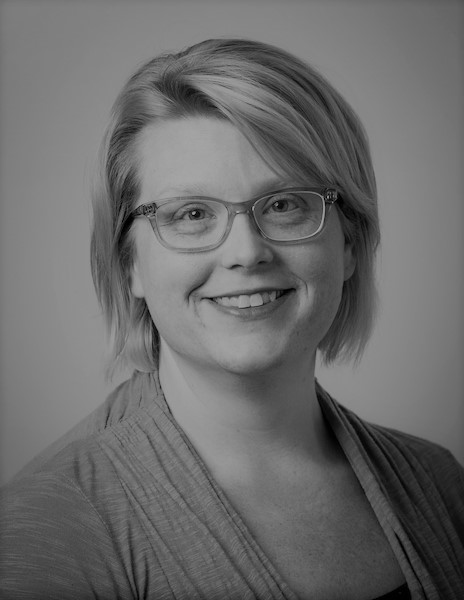
Lynn Frair from NurseNumbers.com started investing at the age of 12 and is now a financial coach who primarily works with other nurses. She has been featured in The Wall Street Journal and on the popular FIRE podcast, Choose FI as well as What’s Up Next and Nurses on FIRE. She became an ICU nurse right out of school but was soon diagnosed with a brain tumor that changed her life. The brain tumor, resulting medical bills, and decreased work during recovery was financially difficult–it wiped out many years of investment savings. Lynn and her husband had to rebuild again from a net worth of zero in 2009 and are now leading a work-optional life at 40 years old. Lynn enjoys speaking about financial empowerment and intentionality, healthcare options in early retirement.
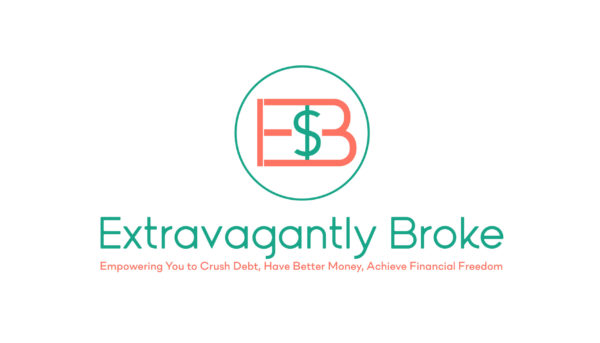







Wow! What a story of resilience and dedication!
I know right! Lynn is so amazing and inspirational! But as she said in the interview, she’s too darn stubborn to give up.
I love the distinction made between being a financial coach & a financial advisor! A more holistic approach is a key to achieving long term success and not just one off quick wins!
I completely agree! Thanks for your comment!
This is such a great thorough interview! I’ll be sharing with someone who I think would benefit from this.
Thank you so much! And please do share. 🙂
Thank you so much for this insightful post. Financial literacy and knowledge are so important!
Absolutely! And thank you for your comment!
What an inspirational post. I love that. Good job doing the video interview.
Thank you so much! It was super fun!
Even with the NHS in our country I worry what would happen if I were to get sick as a single parent. It’s terrifying.
Yes, that is terrifying for so many people in America as well. I don’t know how things work in England but that is why Lynn created FIhealthcare so that people would know what options are available surrounding healthcare. Maybe it can give you some ideas or resources you can look into further.
This read is truly inspiring. Not only does it blow me away with how she was able to overcome her struggles, but it also motivates me to focus on helping others with thier finances. Happy to have come across your channel!
Thank you so much Stefanie! I’m so glad you see the value in Lynn’s story…she is truly inspirational!
Wow on coming back with that recovery! Thanks for the tips on thinking about interest rates, you’re right in that many of us take interest rates for granted.
So true, Virginia and interest rates are like throwing good money down the drain. And sometimes they can make all the difference in how quickly we reach our financial goals! Thanks for your comment!
Hi, I’m also a personal finance blogger! I enjoy reading this interview. I also recently wrote about financial independence on my blog and I’m very much obsessed about this topic. 🙂
I’m glad you enjoyed Lynn’s story! Glad to hear you’re also a PF blogger. It’s good to have different perspectives from people with different experiences. Thanks for commenting!
This was a great interview! I enjoyed reading!
Thank you so much! I’m glad you enjoyed it! 🙂
What a great and enlightening interview! I’m glad to have heard Lynn’s story. I love the point how Lynn found it better to help people by charging them money. Interestingly people start to pay more attention when “they have skin in the game!” Thanks for sharing this interview!
That was a great takeaway for me as well, Minda. And it totally makes sense that when people pay they actually apply more effort.